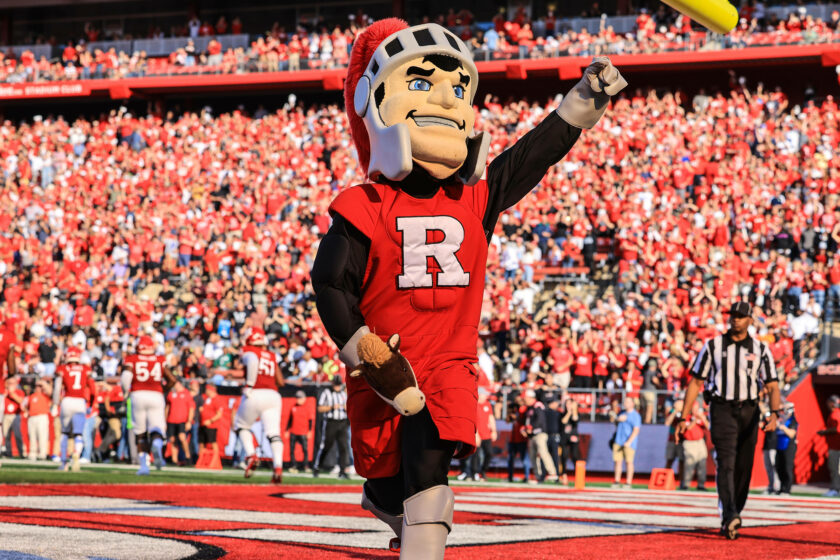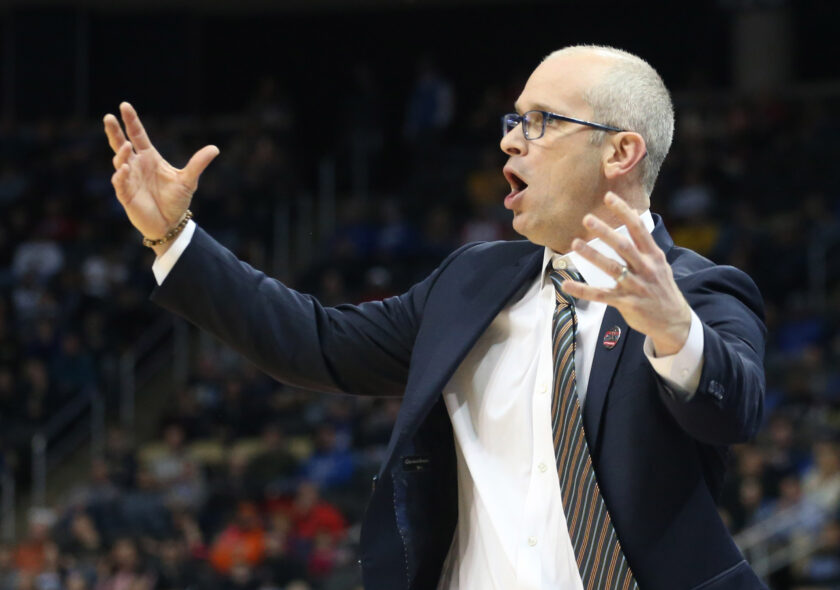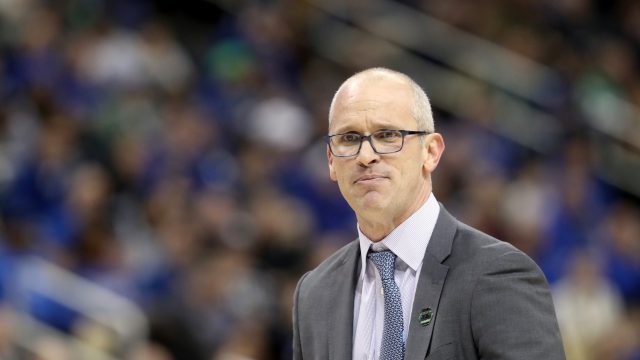The never-ending Rutgers athletics war is fought in bad faith

It has been a while since the New York Times rediscovered Big Ten football is played in the exotic land of New Jersey. But the Gray Lady’s subcontractors are back on the case.
Rutgers has been catching plenty of shrapnel amid the latest round of college conference expansion. And now The Athletic has jumped into the scrum with a haymaker — “The worst realignment move ever is worse than you thought.”
The piece is well-reported. But it reveals nothing new. These stories have become paint-by-numbers, both in execution and reaction.
The football team stinks, the athletics department has racked up a ton of debt, some angry faculty quotes, Mike Rice is referenced, a brief discussion about the school’s other programs that lacks context, the begrudging concession that Rutgers (and Maryland) have made the Big Ten wildly rich, a circle-back to Rutgers stinking at football, then everyone gets very mad online.
👉 Claim Your bet365 NJ Casino Bonus Code Right Now
The holy war between Rutgers athletics supporters and detractors has raged for over 150 years. No, really — the 1869 rubber match between Princeton and Rutgers was called off because the professors threw a hissy fit. And Rutgers has its crosses to bear. That is undeniable.
Athletics and university leaders have made too many bad decisions to count over the years. Concerns and questions about the financial situation are valid. The fanbase is modest, both in size and wealth, and wildly sensitive. The university (and state, really) community often lacks the knowledge of what big-time college sports entail. But its opponents — especially those on the homefront — also operate in bad faith.
Yes, Rutgers has made significant strides in most of its sports. Yes, the school is an AAU member and academic powerhouse that boasts accomplishments like inventing the first coronavirus saliva test. And yes, no one nationally talks about how many New Jersey residents the other Big Ten members may be attracting (and getting to pay out-of-state tuition). Or how many students Rutgers is getting from the other member states. Or all the doors to New York City open for both sides. Not to mention that Rutgers and Maryland made the conference a lot of money while taking very little for themselves.
But guess what? It is what it is. Football drives the bus. Football is what matters. And since football is struggling, the national perception will be bad. Myopic, sure, but there is nothing you can do about it.
The unfair criticism tends to come from inside the house. Look, Rutgers is as good, if not better, at wasting money as everyone else in the gilded world of collegiate athletics. The Scarlet Knights can undoubtedly find ways to tighten their belt. But the athletics deficit is not driven by football coaching salaries, DoorDash orders and sleep pods, as opponents want you to believe. That all should be examined. But the debt explosion is primarily due to facilities.
Rutgers neglected them for decades, then raced to catch up and stuck the athletics department with the bill. We get that Rutgers is committed to higher education’s greatest scam — athletics departments should be self-sufficient based solely on the money the football team makes. But the university should be paying for the basketball teams to have a suitable practice venue and for student-athletes to have a place to get academic support. This is not a case of putting a waterfall in the lobby or a recording studio in the locker room. These are landmark buildings on campus. And even if you believe athletics should pay, there is a difference between good debt and bad debt.
Rutgers professor Mark Killingsworth, a frequent athletics critic, rails against the move to the Big Ten in The Athletic piece. But when has anyone explained how Rutgers staying in the AAC or going back to the reformed Big East or joining the MAC or any other fever-dream what-if would make things any better? Breaking news: Rutgers would still have an athletics deficit without any of the positives that Big Ten membership has brought on and off the field. And it would be even more irrelevant than the national media claims. Also: Do the academics want to be colleagues with Michigan or Temple? And that is not a slight on Temple. But just a reality.
There is also never any acknowledgment that athletics is an academic endeavor. It is no different than having an orchestra or offering specific majors. You play them to attract people to your school. Many students participate in them, and even more come to interact with them. And the vast majority are paying significant tuition dollars to be there.
And along those lines: This debate is framed as a football issue. But that is not true. Go through Rutgers’ annual NCAA disclosure forms. Do some unofficial math (and not the voodoo accounting the formula calls for). The picture is clear: Rutgers football makes a profit if credited for all of its revenues (concessions, parking, tickets, etc.) and that it makes about 90 cents of every TV dollar. So football is always going to continue spending. And the only way to make massive cuts will be to eliminate sports. This means eliminating opportunities for students, many of whom are women and/or come from underprivileged communities. That is not exactly the message, say, a gubernatorial candidate would want to stand on.
Rutgers athletics is not infallible. And it should receive the same level of scrutiny as any other public institution. But the full breadth of the situation should be acknowledged and examined, no matter how complicated and nuanced. That does not happen. So Rutgers should do what is necessary to change it: Forgive the internal debts, assume the external ones and establish a two-tiered athletics structure.
Football and men’s and women’s basketball — the headcount sports that award full scholarships and generate almost all the TV money — must become self-sustaining entities. Everything else is part of the general budget with every other academic offering Rutgers has (and would never expect to break even, much less make a profit). That is the way forward. And how this fight finally ends. But no one should hold their breath. Just expect more hot air instead.
James Kratch can be reached at james.kratch@xlmedia.com. Follow him on Twitter @jameskratch.
James Kratch is the managing editor of ESNY. He previously worked as a Rutgers and Giants (and Mike Francesa) beat reporter for NJ Advance Media.






